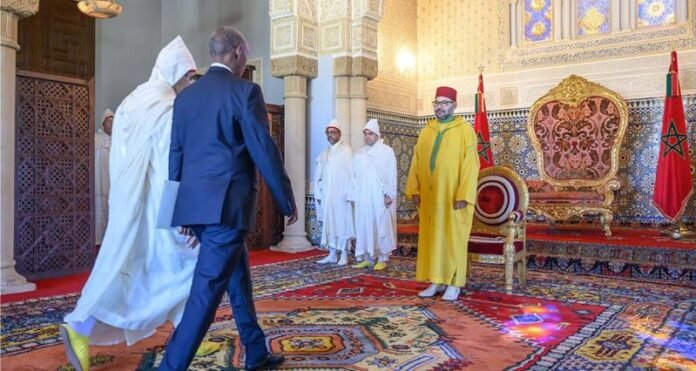As part of the recent appointments made by King Mohammed VI, a group of new ambassadors were appointed, including Ahmed Reda Chami, Fatihah Layadi, and Othman El Ferdaous.
These appointments represent an opportunity to renew the diplomatic elite, yet they raise questions about the extent to which these choices align with the principle of competence and whether they reflect partisan and union loyalties.
Competence vs Party Loyalty
The issue of appointments to high positions is controversial, as it involves a mix of competence factors and partisan considerations. While the modern world requires qualified diplomatic leadership capable of adapting to new challenges, party loyalty often plays a greater role in decision-making.
For instance, Ahmed Reda Chami, currently head of the Economic, Social, and Environmental Council, was appointed as ambassador to the European Union. But does this choice reflect his competence in the diplomatic field, or is it part of the party’s strategy to ensure its interests are represented within state institutions?
Partisan Tendencies in Appointments
The selection method for ambassadorial candidates appears to depend on party loyalty, with candidates from dominant parties being favored. This points to the existence of a network of relationships based on political affiliation rather than the qualifications of individuals.
In this context, various mechanisms are used to direct choices, including adjusting candidacy conditions to suit those with the required loyalties. This approach reflects the inability of state institutions to open up to talents not tied to parties, which hinders administrative performance and deepens citizens’ frustration.
Ideological Loyalty and Diversity in Choices
Partisan loyalty sometimes extends to ideological loyalty, where individuals are selected based on their political leanings rather than their ability to meet the position’s requirements. For example, candidates whose ideological affiliations do not align with the preferences of decision-makers are excluded, further diminishing trust in appointments and increasing frustration among youth and society at large.
Impact of Appointments on General Competence
These appointments serve as an obstacle to the development of state competencies, as genuine talents are marginalized in favor of party loyalties. This pattern of appointments reinforces the image of state institutions as tools serving parties, rather than as entities working for the nation’s and citizens’ best interests.
Conclusion
The recent appointments in Morocco’s diplomatic corps present significant challenges regarding competence and loyalty. It is essential to revisit the appointment mechanisms to ensure a balance between qualifications, skills, and partisan considerations in order to meet the strategic objectives required by the current stage.
Success in this area depends on Morocco’s ability to overcome loyalty and partisan considerations, moving towards establishing an administrative system that ensures equal opportunities and fosters progress and innovation.


